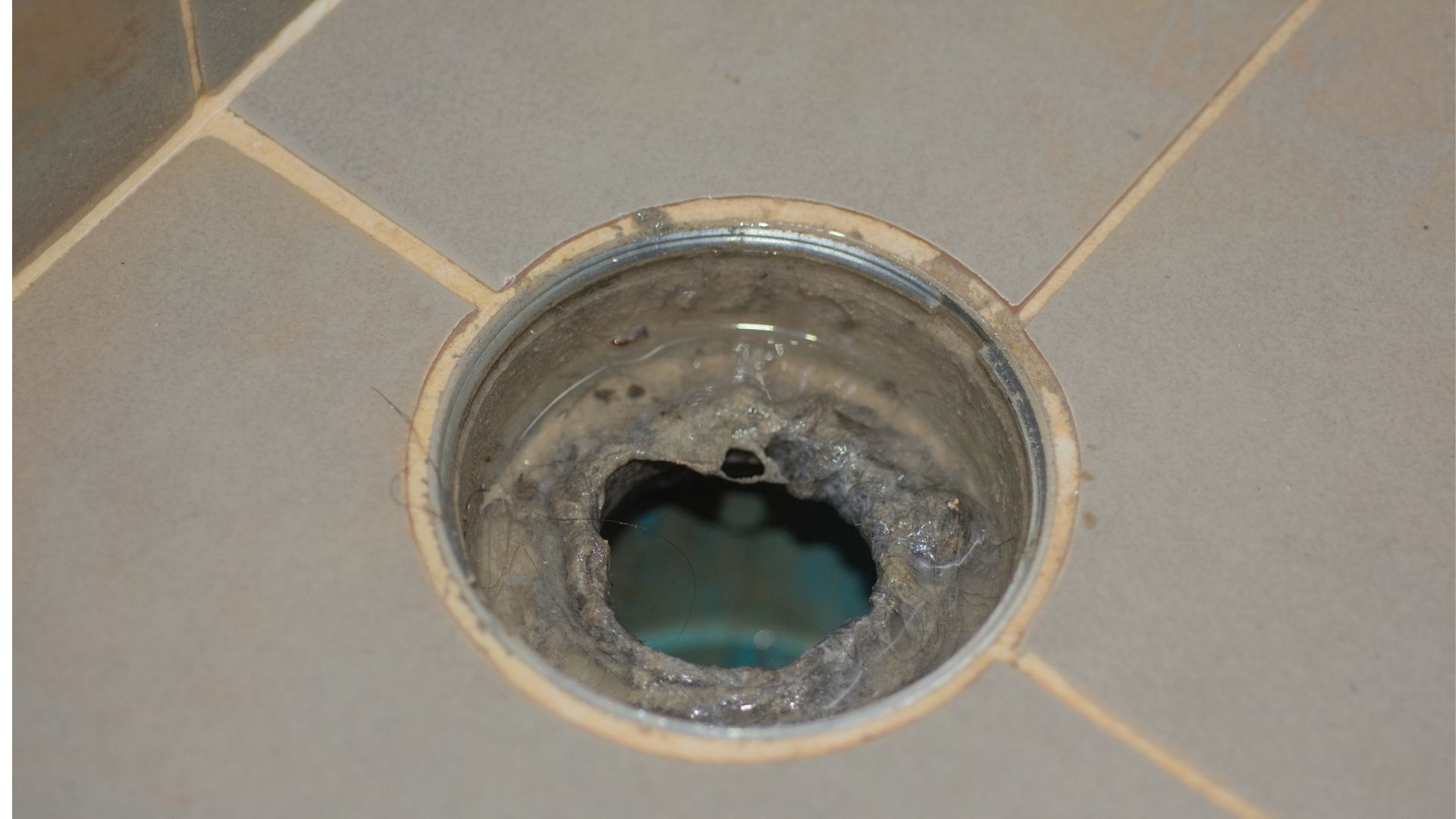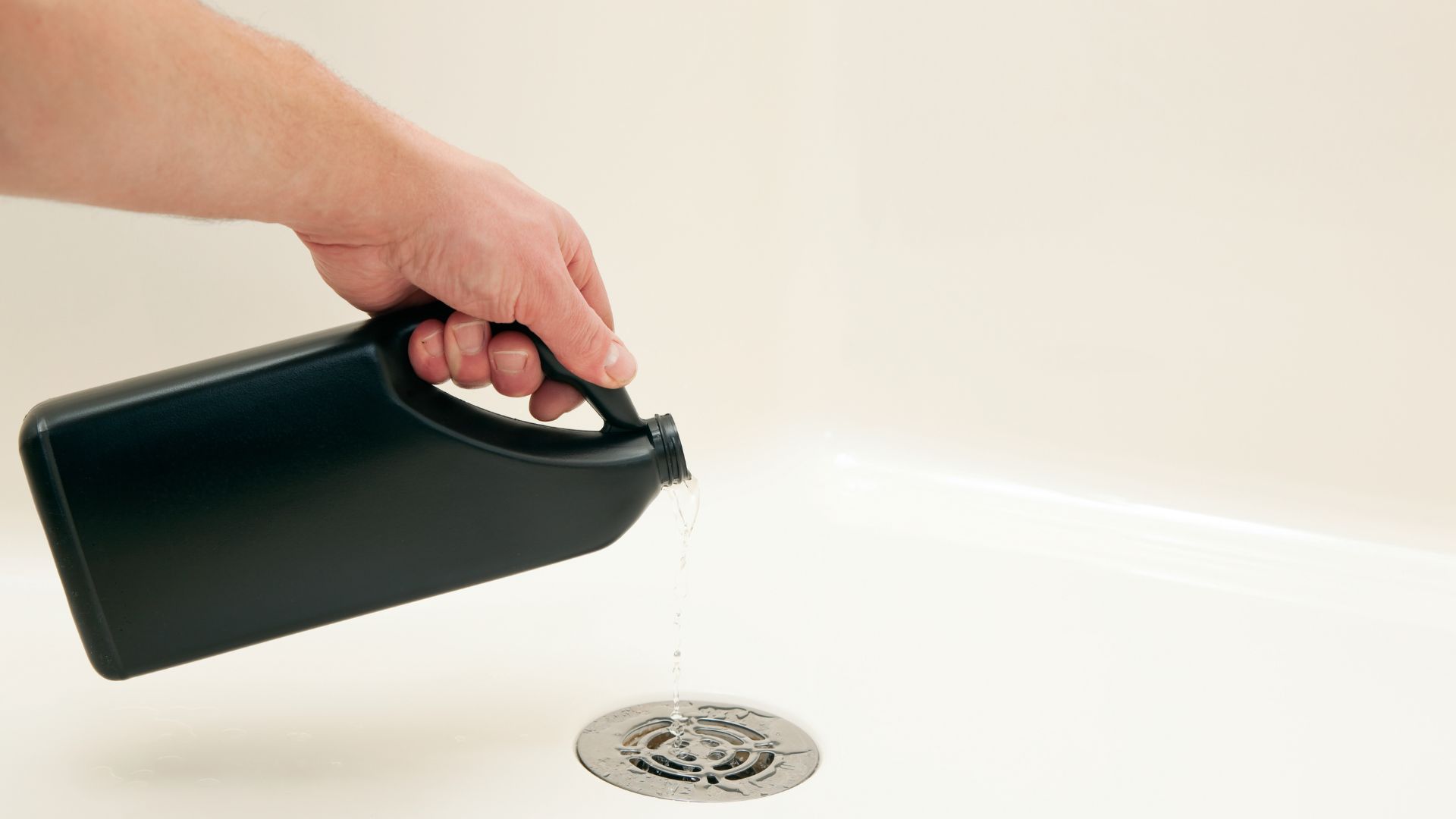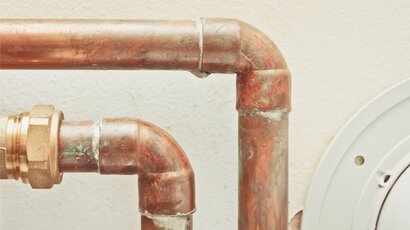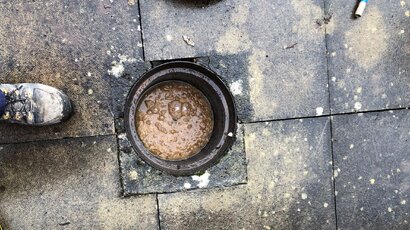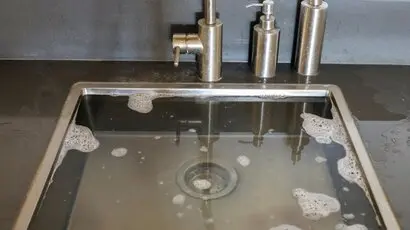Ever noticed your sink taking longer to drain and wondered if it’s a small hiccup or the start of costly repairs? Blocked drains are a common headache, causing unpleasant smells, slow water flow and, if ignored, flooding that damages floors and walls.
In many Australian homes, clogged drains are inconvenient, creating stress when the toilet bowl won’t clear or the shower turns into a bath. These issues often escalate, leading to stubborn clogs that need professional help.
Naturally, people turn to powerful cleaning properties found in bleach hoping it will clear the mess. But does bleach unclog a drain or is it just another myth?
Before reaching for chlorine bleach or harsh chemicals, it’s worth understanding if using bleach truly helps with clearing blocked drains or if it’s time to explore professional methods that can actually tackle the root cause.
Why Drains Get Blocked in Australian Homes
Why do blocked drains happen so often? Food scraps, coffee grounds, soap scum, hair, toilet paper, and food particles build up, causing partial blockages or minor clogs. Clogged toilet issues often start when other substances, like baby wipes or too much toilet paper, enter your pipes.
![]()
Grease and organic matter can cling to pvc pipes, hardening over time and causing blockages that resist quick fixes. Outdoor drains are often blocked by leaves and debris, especially after heavy rain.
When water stops moving freely, many households quickly search for easy solutions, leading them to consider pouring bleach or other household cleaners down the drain. The logic seems simple: bleach works to kill bacteria and remove stains, so it should clear drains, too.
But before using drains bleach for clearing minor blockages, it’s essential to understand what bleach actually does inside your pipes and if it’s the right choice for your home’s plumbing system.
What Happens When You Pour Bleach Down a Clogged Drain?
Chlorine bleach is a cleaning agent known for its powerful cleaning properties and ability to kill bacteria. When pouring bleach down a drain, it can help reduce unpleasant odours and disinfect the area.
However, bleach does not dissolve stubborn blockages like hair, grease or food particles. Instead, it may react with organic matter, creating a chemical reaction that could worsen the clog or release harmful fumes like chlorine gas.
If bleach mixes with other chemicals or other household cleaners, it can produce toxic gases that pose breathing problems and skin irritation, especially if there’s no exhaust fan in your bathroom.
While bleach may clear some smells, it doesn’t break down solid material effectively, and the fizzy reaction people expect from baking soda and vinegar creates a different cleaning action altogether.
In some cases, bleach can corrode pipes, especially with prolonged exposure in PVC pipes, leading to leaks and further damage.
Before using more bleach in an attempt to clear tougher blockages, consider what is really happening when you pour bleach into your drain.
The Risks of Using Bleach for Drain Cleaning
Using bleach for clearing clogged drains carries risks. The fumes released can cause breathing problems and skin irritation, especially if bleach reacts with other chemicals or chemical drain cleaners, producing toxic gases like chlorine gas.
Bleach can damage pipes, particularly pvc pipes, and corrode pipes over time, leading to leaks that require costly repairs. It can also react with other substances like cleaning agents or other household cleaners, creating dangerous fumes that linger without proper ventilation.
Environmentally, bleach entering the septic system or waterways can harm beneficial bacteria that break down waste.
Instead of clearing the clog, bleach may push blockages deeper, making stubborn blockages worse. In drains with grease, bleach can cause the grease to harden, resulting in a tougher blockage.
While bleach works to disinfect and remove stains, it is not an effective solution for clearing blocked drains and may lead to damaged pipes and additional plumbing system problems you could otherwise avoid.
Don’t Do This: A Common Mistake With Bleach and Hot Water
A common mistake is pouring bleach into a drain, then flushing it with boiling water to clear toilet clogs or sink blockages. This creates harmful fumes and can warp pvc pipes, leading to leaks.
Some think more bleach and hot water will melt the blockage, but this approach often fails, creating toxic gases and worsening clogged drains.
If you’re tempted to try this, remember: bleach plus boiling water is unsafe and ineffective for clearing blocked drains, and using a drain snake or plunger is a safer first step.
![]()
What Actually Clears a Blocked Drain?
Clearing blocked drains often starts with simple, effective DIY methods. Using a plunger can help by creating suction to dislodge minor blockages. For stubborn clogs, a drain snake or drain auger can reach deeper to clear tougher blockages without damaging pipes.
For sinks, try hot water mixed with dish soap to soften greasy build-up. Combining baking soda with vinegar creates a fizzy reaction that can help clear partial blockages without harsh chemicals.
While chemical drain cleaners exist, they carry risks similar to bleach and can damage pipes with prolonged exposure. These should be used with caution and while wearing rubber gloves.
These methods can help with minor blockages, but stubborn blockages or clogged toilet issues may not clear with home solutions alone.
If your drain is still slow or blocked, and the water flow does not improve, it’s a sign the blockage is beyond a DIY fix. At this point, considering professional methods will save time, stress and potential damage to your plumbing system.
When to Call a Professional Plumber
Sometimes clearing blocked drains requires a professional plumber. If your sink or shower is draining slowly despite trying a drain snake, hot water, baking soda, or dish soap, it could indicate a deeper issue.
Unpleasant odours that return after cleaning can signal a blockage in the pipes or septic system. Gurgling sounds or bubbling when water drains are other warning signs.
Overflowing sinks, showers, or a clogged toilet that won’t clear after several attempts indicate stubborn blockages.
A professional plumber has the right equipment, such as advanced drain augers and inspection cameras, to locate and remove tougher blockages safely. This avoids costly repairs from accidental damage caused by incorrect DIY attempts.
Don’t let a small issue turn into a flood or severe blockage that disrupts your household. If home methods don’t resolve your drainage issues, it’s time to call in a professional.
Alternatives to Bleach for Regular Drain Maintenance
Instead of using bleach regularly, consider safer alternatives for maintaining drains. Enzymatic cleaners are effective, breaking down organic matter without harsh chemicals that can damage pipes.
A monthly flush with hot water can help prevent build-up, while a combination of baking soda and vinegar can keep pipes clear without producing harmful fumes.
Avoid flushing coffee grounds, food scraps, or excessive toilet paper down drains, as these can contribute to clogged drains and toilet clogs.
Practising preventative habits like using drain strainers can stop food particles and soap scum from causing blockages in the first place.
These strategies help keep your plumbing system flowing without relying on chemical drain cleaners, other chemicals, or bleach that can lead to prolonged exposure issues.
Prevention is the best approach to avoid the stress of stubborn clogs.
Blocked Drains? It’s Time to Act
Bleach might remove stains and clear some smells, but it isn’t a real solution for blocked or clogged drains. If you’ve tried hot water, baking soda, or a drain snake with no success, it’s time to take the next step.
Avoid the risks and hassle of worsening the blockage or causing costly repairs. Get your drains cleared properly, ensuring your home remains clean, safe and stress-free.
Act quickly to prevent stubborn blockages from becoming plumbing emergencies.
Ready to Clear Those Blocked Drains for Good?
If your drain remains stubbornly blocked, it might be time to reach out for help. WP Plumbing is ready to tackle your blocked drain issues with expertise and professional care to save your home from mess, stress and damage. Contact us for reliable blocked drain services.
Don’t let a minor blockage turn into a major issue that disrupts your day and leaves you dealing with unpleasant odours and overflow. The right professional methods will clear your drain safely, avoiding the damage harsh chemicals and incorrect DIY attempts can cause.
WP Plumbing’s experienced team can quickly identify the root cause of your drain issues, using advanced tools and safe practices to clear blockages without harming your pipes. Take action now, contact WP Plumbing today for peace of mind and a plumbing system that flows properly.

